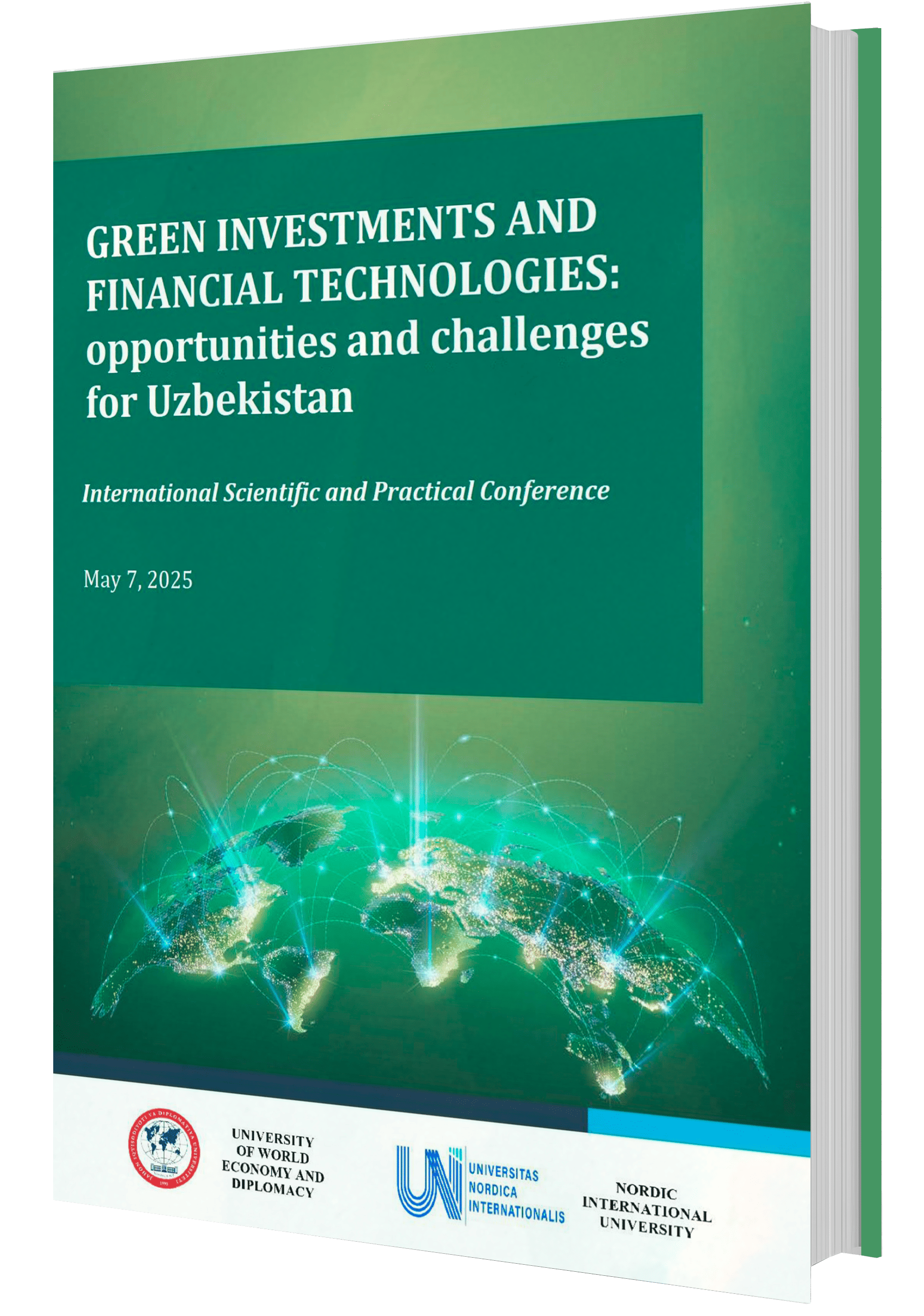INTERNATIONAL COOPERATION FOR GREEN ECONOMY TRANSITION IN UZBEKISTAN: STRATEGIES, OPPORTUNITIES, AND GLOBAL LESSONS
Аннотация
Uzbekistan's transition to a green economy represents a strategic realignment toward sustainable growth, climate resilience, and environmental restoration. Amid pressing challenges such as water scarcity, fossil fuel dependence, and land degradation, the government has recognized the necessity of collaborative international approaches. This article analyzes Uzbekistan's green economy transition, highlighting international financial mechanisms, technology transfer, and policy integration. Drawing comparisons with nations like Germany, South Korea, and Singapore, it underscores effective models Uzbekistan can adapt. The study concludes with targeted recommendations for deepening global partnerships, institutional reforms, and local implementation strategies to secure long-term sustainability.
Библиографические ссылки
Agence Française de Développement (AFD), 2022. https://www.afd.fr
BMWK (Federal Ministry for Economic Affairs and Climate Action, Germany),
Daryo.uz, 2024. "Uzbekistan's Green Finance Mobilization Efforts".
European Commission, 2025. "EU-Central Asia Summit in Samarkand". GGGI,
"COP29 Green Finance Update". GIZ (German Agency for International
Cooperation), 2024. https://www.giz.de
MOE Japan, 2024. "JCM Updates and Asia-Pacific Cooperation".
Naturvardsverket (Swedish EPA), 2023.
PUB Singapore, 2023. "Urban Water Sustainability in Arid Environments".
Reuters, 2024.
"Uzbekistan Waste-to-Energy Projects". UNDP Uzbekistan Country Office,
World Bank Uzbekistan, 2024.
Загрузки
Опубликован
Выпуск
Раздел
Лицензия
Copyright (c) 2025 Mohinur Suyunova

Это произведение доступно по лицензии Creative Commons «Attribution-NonCommercial» («Атрибуция — Некоммерческое использование») 4.0 Всемирная.
Условия лицензии
Эта работа доступна под лицензией Creative Commons Attribution-NonCommercial 4.0 International License. Чтобы просмотреть копию этой лицензии, посетите http://creativecommons.org/licenses/by-nc/4.0/ или отправьте письмо по адресу Creative Commons, PO Box 1866, Mountain View, CA 94042, США.
По этой лицензии вы можете:
Поделиться — копируйте и распространяйте материал на любом носителе и в любом формате.
Адаптируйте — делайте ремиксы, трансформируйте и дорабатывайте материал.
Лицензиар не может отозвать эти свободы, если вы соблюдаете условия лицензии. На следующих условиях:
Атрибуция. Вы должны указать соответствующую ссылку, предоставить ссылку на лицензию и указать, были ли внесены изменения. Вы можете сделать это любым разумным способом, но не таким образом, который бы предполагал, что лицензиар одобряет вас или ваше использование.
Некоммерческое использование — вы не имеете права использовать материал в коммерческих целях.
Никаких дополнительных ограничений. Вы не имеете права применять юридические условия или технологические меры, которые юридически запрещают другим делать все, что разрешено лицензией.





